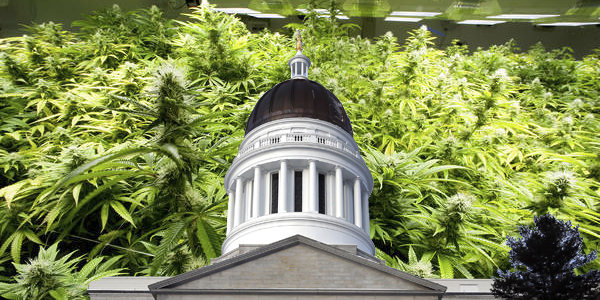
Fighting for Maine farming operations to survive the pandemic
The COVID-19 pandemic has hit a lot of important Maine industries hard. Tourism is perhaps the most high-profile example, but many other sectors have suffered as well, as restrictions put in place to prevent the spread of the virus have kept folks from working and spending their money.
Unfortunately, this includes our farmers, who have suffered from supply chain, safety and labor issues throughout the pandemic.
In Maine we have a diverse agricultural sector made up of large and small farming operations that span the entire state and produce a multitude of different products. We’re known around the country and the world for high-quality agricultural products including blueberries, potatoes, maple syrup, dairy, fresh veggies, apples, eggs and more.
Our farmers aren’t just an important part of our economy, they’re an important part of our local character as well.
As chairman of the Maine Legislature’s Agriculture, Conservation and Forestry Committee, one thing I’ve been particularly concerned about throughout the COVID-19 crisis is what the state is doing to support our farmers.
Last week, the committee held a hearing with Maine Department of Agriculture, Conservation and Forestry Commissioner Amanda Beal and the University of Maine Cooperative Extension Dean Hannah Carter to hear what they had been doing to support farmers and what tools we need to make sure the Maine agricultural sector comes back better and stronger than ever. It was an informative conversation.
Commissioner Beal gave us an overview of federal programs that are in place to help farmers, including direct payments to farmers who were affected by falling food prices during the outbreak, and loan programs to cover payroll and other expenses. Unfortunately, the strict requirements and limited funding for these programs have made them difficult for Maine farmers to access.
She also discussed the department’s efforts to communicate information to farmers as the pandemic took hold; provide personal protective equipment and COVID-19 testing; address labor shortages and meat processing bottlenecks; provide marketing support; and tailor existing grant programs to meet farmers’ needs in this uncertain time.
Dean Carter talked about the Maine Farms and Seafood Directory created by the Cooperative Extension to help connect farmers directly with customers while following social distancing guidelines. They have also helped convene farmers for virtual discussions about what to do to stay afloat in the pandemic, and brought their 4-H program online to keep students engaged while learning from home.
Going forward, we need to use every resource available to support our farmers. We have money available from the federal government, and a number of existing programs and funds that can be put to good use following the COVID-19 outbreak. In particular, there are many programs that purchase food from local farms to feed hungry Mainers.
The unfortunate surge in jobless claims and other financial hardships in the past few months has created an opportunity for these programs to play a bigger role.
There’s also quite a bit of federal funding still on the table that the state can spend as it sees fit. Some of this funding should absolutely go to farmers to help them recover losses and keep providing the great food and other agricultural products we need.
If you have thoughts or suggestions on what Maine can do to help farmers in the coming months, please don’t hesitate to reach out. You may call my office at 207-287-1515 or send me an email at James.Dill@legislature.maine.gov.